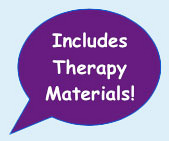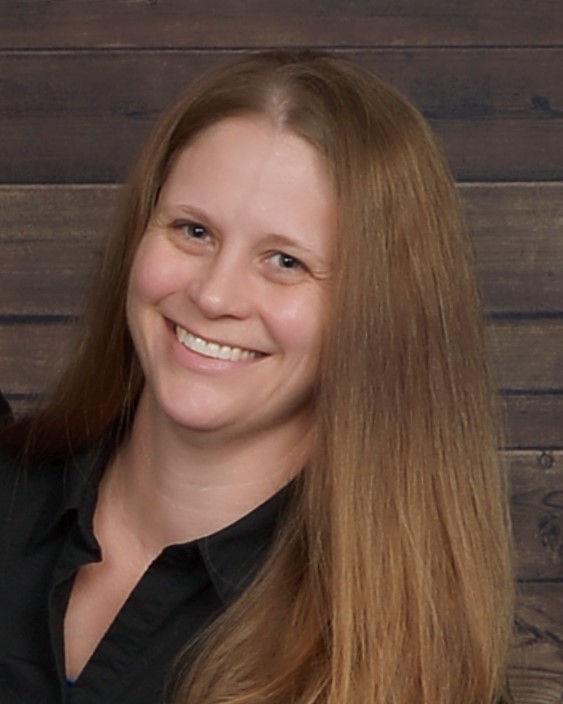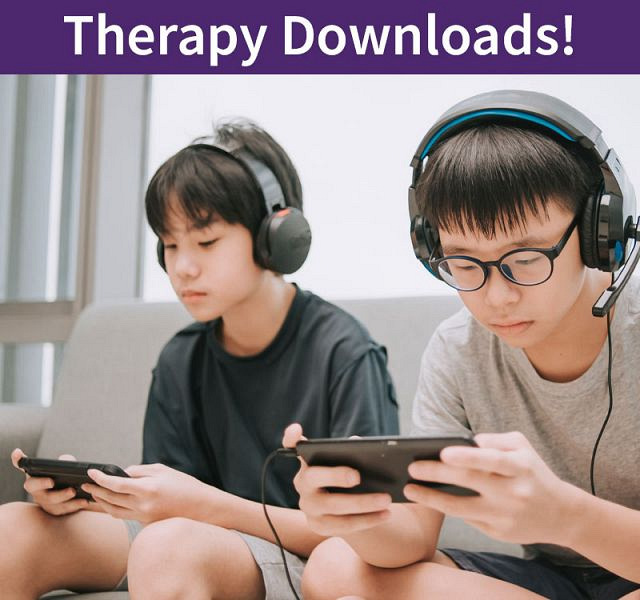Pragmatic Language Methods And Strategies: Anecdote On Excessive Screen Time #e234
Presenter: LeAnna Heinrich, MS, CCC-SLP
Learn the impact that screen technology has on social communication.

– B.S., prior course participant
Read more comments about this course!
Concerns about the risks associated with excessive screen time are growing worldwide. Concurrently, we have seen a significant increase in the number of children who present with pragmatic language needs. As our culture becomes more digitized, SLPs need to understand the impact that screen technology has on social communication.
This course examines the relationship between excessive screen time and language development, and offers suggestions for helping families understand screen time. Specific methods and strategies for incorporating the screen time discussion into pragmatic language therapy are also provided. The information presented in this course can be utilized when working with families from infancy to adolescents. This course includes downloadable, reproducible therapy resources.
Course is offered for 0.35 ASHA CEUs – 3.5 Contact Hours.
Course Overview – Run Time: 3:30:26
- Evolution of Screen Time
- Understanding Screen Time and Language Development
- Early Intervention/Preschool
- School-Age Children
- Adolescents
- Pragmatic Language Methods and Strategies
- Assessment Considerations
- Parent Education
- Speech and Language Intervention
- Prevention
– A.K., prior course participant
Read more comments about this course!
The content of this online CE course does not focus exclusively on any specific proprietary product or service. Presenter financial and non-financial disclosures may be found in the Presenter & Disclosures area.
Video PowerPoint presentation with author narration & downloadable handout. Stop and re-start the course at any point. Learners retain access to course content after completion for ongoing reference and review.
Reviews
"Information for parents was helpful. I liked the research to share as proof of training caregivers." T.E. (Jul. 2024)
"The effects of passive screen time in adolescent social development was a beneficial topic. It was very easy to take the information and turn key to parents or staff in schools." J.G. (Mar. 2024)
"This topic is so timely and relevant to SLP practice. Practical and functional ideas. There are many beneficial ideas about both explaining the importance of joint attention and social interaction and incorporating social interaction into screen time for families to play together." P.A. (Feb. 2024)
"I like the AAP's screen time recommendations listed in age range so it's easier to explain to parents. I like the Screen Time Use Matrix table as well. It clearly lists activities in each category for the parents to see. I like the pictures used and the questions that address my own screen time use and experiences. I also like the list of questions that I can use to ask parents about their kids' screen time usage and their own." L.H. (Dec. 2023)
"Relevant information well presented. Parental modeling of screen time and impact on active language learning were beneficial topics." E.N. (Dec. 2023)
"I liked the practical ways of explaining and utilizing this info. The ideas on how to use language enriching activities vs screentime activities were helpful." S.A. (Nov. 2023)
"The use of screen time and how it is broken down in the Matrix was beneficial. I liked that I could relate to it with my own children and the students I currently have on my caseload." A.I. (Nov. 2023)
"I liked all the statistics on how screen time negatively impacts language development and the stress on play. One of the topics that I am most passionate about!" A.M. (Oct. 2023)
"Learning the side effects of excessive screen time. And learning information to educate parents on screen time types and ways to increase language and social interactions." E.M. (Aug. 2023)
"I liked that this course explains how important social communication is to language development and interpersonal relationships." C.T. (Jun. 2023)
"The Screen Time Classification Matrix is great as both a tool and a visual for parent training. The examples within each box help make it easier for parents to understand for both themselves and their children. I also really enjoyed the social communication pictures and follow-up questions that were provided. Such great scenes, all with different intentions to help our kiddos who have difficulty with reading nonverbal language and facial expressions." A.W. (Mar. 2023)
"Students talk about screen time games frequently. Learning all the effects of screen time was beneficial." B.S. (Feb. 2023)
"I liked the statistics for parents, the information to show parents." P.D. (Feb. 2023)
"Learning the difference regarding screen time and its effects on young children was beneficial." G.S. (Dec. 2022)
"Practical applications. I liked the use of pictures to discuss screen time with children and to use with parents. Also, discussing missed opportunities for language." M.B. (Nov. 2022)
"I liked the comprehensive nature of the content, a lot of information was covered." K.H. (Nov. 2022)
"I liked the breakdown by the age of the impact and missed communication opportunities as well as how to relay this information to families and the cultural aspects to consider. Most important was how to address it in therapy alongside educating parents and families. Also, I did not know that IGD has been added to the DSM-5." K.H. (Nov. 2022)
"Very practical applications and handouts. Learning how important play is and joint attention throughout childhood." A.D. (Oct. 2022)
"Well done course, overall. Good supports for parents." J.C. (Sept. 2022)
"I appreciate the research and resources presented." M.S. (Aug. 2022)
"I like the fact that it is encouraging us to think carefully about what we are doing to children and teens by allowing them early and unlimited time on screens and the detriment it is and has caused to the development of communication skills." K.N. (July 2022)
"Such important information! I liked how applicable the information is to today's world and children." L.D. (June 2022)
"I liked the discussion of how talking about screen time can be used in therapy. I really learned a LOT about this subject. I liked how the presenter covered so many areas. I liked how the presenter talked about the ages in different sections. The whole course was engaging." L.W. (Mar. 2022)
"Liked the research supporting clinician's observations as well as the specific areas of development impacted by excessive screen time. The topic was great, as this is an area of interest and concern of mine." A.P. (Mar. 2022)
"I liked the specific examples the speaker gave of how to incorporate talking about screen time into a therapy session." A.L. (Mar. 2022)
"The topic is so relevant to the world we live in today. I liked the Screen Time Matrix." A.S. (Mar. 2022)
"She gave many examples and many notes to be taken down. Good to have on demand to rewind when needed." D.B. (Feb. 2022)
"It was very informative and backed by research. Liked the impact of iPhones via parent modeling." A.R. (Feb. 2022)
"It gave specific information about the topic and the list of references is excellent." L.H. (Feb. 2022)
"Liked the comparison of young children, teens and adults using electronic devices." P.D. (Feb. 2022)
"I liked the depth of coverage and applicability of the topic to clinical practice for SLPs." C.E. (Jan. 2022)
"Liked the emphasis on social communication." K.H. (Jan. 2022)
"I liked the depth of coverage and applicability of the topic to clinical practice for SLPs and with references to research." C.E. (Jan. 2022)
"Discussing screen time with clients/students – breadth of information across and impact on development across childhood." K.S. (Jan. 2022)
"Very detailed - New information on screen time." S.T. (Jan. 2022)
"Liked having materials in front of me while listening to presenter. Personally and professionally, screen time is an ever evolving, always necessary skill to manage and perfect." C.W. (Dec. 2021)
"It was very thorough in its description of language skills not being addressed with excessive screen time. I found the concept of missed opportunities due to increased screen time interesting." A.Y. (Dec. 2021)
"Great reminders to have conversations with parents and how to bring it up." S.C. (Dec. 2021)
"The therapy ideas/suggestions will be beneficial and easy to implement during therapy sessions with my older students who enjoy talking about their gaming and/or YouTube browsing habits! Very thorough and informative!" L.D. (Dec. 2021)
"I liked the statistical information. Helpful for discussing with parents." M.P. (Nov. 2021)
"Most of this information applies. I work with preschoolers whose parents are proud of their 3 and 4-year-old's swiping skills. I liked thinking about the Screen Time Use Matrix and passive v. active." A.B. (Nov. 2021)
“The organization of the material and the relevant and useful information that I can share with families was excellent!” G.E. (Nov. 2021)
“I believe the negative effects and missed language opportunities for infants and children still developing language, as well as the 20-20-20 Rule for children (and adults!) to rest their eyes from excessive screen use, was a very interesting and relevant topic!” A.C. (Oct. 2021)
“Clear, precise presentation with valuable information on how excessive screen time is detrimental to speech and language development and can greatly impact social-emotional development.” J.T. (Sept. 2021)
“I think it was refreshing to know that I am not the only speech therapist who sees screen time as a problem but also thinks that the use can be made to explore and improve both language and cognitive skills. I liked that it addressed preschoolers, school age, and adolescents and how each group was affected.” C.D. (Aug. 2021)
"The screen time matrix is a helpful descriptive tool! I appreciated the emphasis of having a nonjudgmental tone with families when discussing screen time." A.E. (Aug. 2021)
"I found the idea of all the missed opportunities kids experience when they are distracted by a device rather than tuned into the language and interaction all around them fascinating. Additionally the idea that so many of their learning experiences are 2 dimensional when they spend so much time on educational video games and screen time rather than manipulating and interacting with real objects is also so interesting....and disturbing. I was pleased to see so many suggestions about how to discuss screen time with families. The course was easy to follow and I can readily see how it relates to the children and families I interact with. I also appreciated the resources mentioned throughout the course." A.K. (Aug. 2021)
"Tips about how to help parents to understand the importance of play and how to build non-screen play-time at home will benefit my daily practice. The course had a clear organization." C.H. (Jul. 2021)
"Discussion of communication at various ages of language development was beneficial for my practice. I liked the discussion of the Queensland research and matrix." T.W. (Jul. 2021)
"I like that this course is very relevant to the SLP in educational (public school) settings." S.S. (Jun. 2021)
"I liked that the author divided the discussion into age groups and provided a viewpoint of not only children using technology but also their parents and how that ultimately affects the children. I also liked the ideas on how to approach parents diplomatically regarding their children's use of screen time." C.S. (Jun. 2021)
"I enjoyed going over what screen time does to children’s developing brains (at different ages), the missed language opportunities when screens are used, and how to talk to parents about excessive screen use." A.W. (May 2021)
"Going over incorporating discussing screen time during an evaluation was most helpful. I liked the easy to follow presenter & nice handouts." K.S. (Apr. 2021)
"Giving parents strategies to create opportunities to have joint attention was very useful. I liked the active VS passive use discussion." T.M. (Mar. 2021)
“I loved that the presenter provided resources and references for further investigation. The clarity in which play was presented as essential for learning about: the world; the self; relationships; social interactions; was insightful.” J.H. (Mar. 2021)
“This is the best online course I have found in a very long time. I find myself wanting to share it with various staff members and wanting to take this topic on at a school-wide level.” B.S. (Feb. 2021)
"I liked how she had specific examples of each topic she covered." M.C. (Feb. 2021)
"The discussion on training parents in the management of their children screen time control was most beneficial. The course is very clear and very well documented. I liked everything." R.O. (Feb. 2021)
"The course was very relevant to my daily practice. I especially appreciated the AAP recommendations and ways that screen time result in missed opportunities during activities of daily living." A.S. (Jan. 2021)
Course Objectives
- List at least 5 ways that excessive screen time may impact child development.
- Describe various levels of social communication associated with different types of screen time.
- Demonstrate language-enriching activities sensitive to a family’s screen time values.
- Analyze a client’s screen time experience when conducting evaluation and providing treatment.
- Explain current screen time recommendations in a way that families will understand.
-
Integrate screen time discussions into functional pragmatic therapy activities.
Presenter & Disclosures

LeAnna Heinrich, MS, CCC-SLP, is a school-based speech-language pathologist in Northern California. She works primarily with elementary school students with a variety of communication disorders. LeAnna is also a member of the Children’s Screen Time Action Network. She has presented at the local, state and national level on the topic of screen time. LeAnna has a particular interest in helping students and families carryover language-enriching activities into functional environments.
Speaker Disclosures:
Financial — LeAnna Heinrich is the presenter of online CE courses sponsored by Northern Speech Services; receives royalties.
Nonfinancial — LeAnna Heinrich is a member of the Children’s Screen Time Action Network.
Nonfinancial — LeAnna Heinrich is an official supporter of ASHA’s Healthy Communication and Popular Technology Initiative.
Intended Audience / Accreditation

This program is offered for 0.35 ASHA CEUs (Intermediate Level; Professional Area).

Intended Audience
- Speech-Language Pathologists
- SLPA
ASHA CEUs: NSS online courses are registered with ASHA and are offered for ASHA CEUs. The number of ASHA CEUs is noted above. Note that 0.1 ASHA CEU = 1 contact hour = equals 1 CEE.
ASHA CE Registry: During the enrollment process, if you select to receive ASHA credit for this course and if you provide your ASHA number, NSS will automatically submit your CEU information to the ASHA CE Registry after successful course completion (80% on post test). This submission happens once per month, during the first week of the month. For example, if you complete your course on November 7th, NSS will submit all November online course CEUs to ASHA during the first week of December. When ASHA inputs the information into their database, they will mark the course as completed on the last day of the month in which it was completed, so November 30th using this example. The certificate of completion available for you to print immediately, however, will reflect the actual completion date, November 7th in this example. Due to ASHA processing procedures please allow 2-3 weeks, from the submission date, for the course to appear on your ASHA transcript.
ASHA CEUs: Attendees must meet at least one of the following conditions in order to be eligible to earn ASHA CEUs:
- Current ASHA Member.
- ASHA Certificate of Clinical Competence (CCC) Holder.
- Licensed by a state or provincial regulatory agency to practice speech-language pathology (SLP) or audiology.
- Credentialed by a state regulatory agency to practice SLP or audiology.
- Credentialed by a national regulatory agency to practice SLP or audiology.
- Engaged in a Clinical Fellowship under the supervision of an individual with their ASHA CCC.
- Currently enrolled in a master's or doctoral program in SLP or audiology.
If an attendee is not an ASHA member or CCC holder but meets any of the above criteria, they may inform the ASHA CE Registry of their eligibility by visiting this site.
Licensing Boards: Most state licensing boards DO accept CEUs earned online (usually classified as home-study credits). Some state boards do, however, place a limit to the number of credits that can be earned via home study/online courses. For the most current information, we suggest that you contact your licensing board or agency to verify acceptance policies and/or any credit limits related to home-study courses prior to registering for this course.
Additional accrediting agencies by which Northern Speech is an approved CE provider:
- California: NSS is approved as a provider of continuing education by the California Speech-Language Pathology & Audiology Board. Provider #PDP4. Online CEU limits may apply; please contact SLPAHADB for current online CEU acceptance policies.
- Iowa: NSS is approved as a provider of continuing education by the Iowa Board of Speech Pathology and Audiology Examiners. Provider #169.
- Kansas: NSS is approved as a provider of continuing education by the Kansas Department of Health and Environment. Provider #LTS-S0005.
- Florida: NSS is approved as a provider of continuing education by the Florida Speech-Language Pathology and Audiology Board. Provider #SPA-026.
- New Jersey: NSS is approved as a provider of continuing education by the New Jersey Department of Education. Provider #1654.
Frequently Asked Questions
Customer Support: Please phone 888.337.3866 or email info@northernspeech.com.
Course Completion Timeframe:
You have unlimited time to complete our online courses. You may log off and log on as often as you’d like to in order to complete all sections of a course.
However, completion dates are based on Eastern Standard Time. Therefore, if you need your CEUs by a certain date, be sure to complete the course test before 11:59pm EST on that date. For example, if you need CEUs before January 1st, you will need to complete the course test before 11:59pm EST on December 31st.
Content Access:
Access to course materials and content does not expire, even after completing the post test. You may continue to review course material by logging into your NSS account, clicking the My Online Courses tab, and then viewing your desired course.
Certificate of Completion:
On successful completion of the post test (80%), a certificate will be immediately available for download and/or printing. This certificate will include your name, date of completion (based on Eastern Time Zone, USA/Canada), and number of contact hours (CEUs / CEEs). Please note that CEUs are awarded on the date of successful test completion, not the date of course enrollment. Please ensure that you successfully complete the post test prior to any licensure renewal dates.
ASHA CE Registry Submission:
During the enrollment process, if you select to receive ASHA credit for this course and if you provide your ASHA number, NSS will automatically submit your CEU information to the ASHA CE Registry after successful course completion (80% on post test). This submission happens once per month, during the first week of the month. For example, if you complete your course on November 7th, NSS will submit all November online course CEUs to ASHA during the first week of December. When ASHA inputs the information into their database, they will mark the course as completed on the last day of the month in which it was completed, so November 30th using this example. The certificate of completion available for you to print immediately, however, will reflect the actual completion date, November 7th in this example. Due to ASHA processing procedures please allow 2-3 weeks, from the submission date, for the course to appear on your ASHA transcript.
Purchase Orders:
Purchase orders are currently not accepted for online orders, if you wish to submit a purchase order please do so at info@northernspeech.com or fax to 888-696-9655.
What is an Online Course?
Our Online Courses consist of video, audio, and/or text content and are offered for ASHA CEUs. Unlike a webinar, which requires participants to be logged on and at a computer at specific times, our Online Courses are available to you at any time, from any device, via your NorthernSpeech.com online account. You may work at your own pace and start and stop your course as you wish. Your course will conclude with a short post test. On successful completion of the post test (>80%), a printable certificate of completion is presented to you.
Receiving CEUs:
Northern Speech is an ASHA CE Provider and our online courses are registered with ASHA and offered for ASHA CEUs. Please note that successful completion of the online post test is required prior to the awarding of CEUs. Please contact your state licensing board for acceptance policies related to CEUs earned online. Please note that courses offered for university students are not applicable for CEUs.
Registering for an online course:
You may browse all online courses by clicking the Continuing Education tab above, then Online Courses. Once you find a course, click Enroll Now, and you will be asked to either log into your existing Northern Speech account or create a new online account. Once you’ve entered your account information and provided your credit card payment, your course will be immediately available to you.
Accessing your purchased course or returning to a purchased course:
You will be able to access your online course by logging into your Northern Speech account and then clicking the My Online Courses tab on your profile screen. Click the course you would like to start or to resume. From there, proceed through the course sections until you are ready to complete the post test. You do not have to complete your course all at once. You may log on and off as you wish.
Testing requirements:
Each online course concludes with a post test consisting of multiple choice or true & false questions. Scores of 80% or greater are required for successful course completion and awarding of CEUs. You may revisit course materials and retest as needed to achieve a passing score.
Number of CEUs offered:
We offer courses from 1 to 21 contact hours. Each course will note the number of CEUs offered. Please note that 0.1 CEU = 1 contact hour = 1 CEE.
State licensing boards and online CEUs:
NSS is an ASHA CE Provider and most state licensing boards DO accept ASHA CEUs earned online (usually classified as home-study credits). Some boards do, however, place a limit to the number of CEUs that can be earned via home study/online courses. For the most current information, we suggest that you contact your licensing board or agency to verify acceptance policies and/or any CEU limits related to home-study courses prior to enrolling in an online course.
Course formats:
Our course formats include: text, audio, video, and PowerPoint with author narration. Each course will note the format on the course description page. Most courses include closed captioning.
Course handouts:
Most of our online courses provide a link to download the accompanying handout as a PDF file.
Group discounts:
Groups of 3 or more are eligible for a 20% discount on each registration on most of our online courses. To receive this discount, registrations need to be processed together via the "Group Rates" tab on the Online Course of your choice.
Computer requirements:
For our online courses to function best, we recommend that you update your computer to include the newest version of your Internet browser (Safari, Chrome, Firefox, Edge, Internet Explorer, etc.) and newest version of your computer's operating system. Also a high-speed Internet connection is recommended (cable or DSL). Speakers or headphones will be required for many of our courses as many contain audio components.
Course Cancellation Policy:
A purchased online course can be exchanged, refunded, or transferred to another individual if contact is made with NSS (via phone or email) within 30 days of purchase and the course materials have not been viewed or downloaded.
Special Needs:
Please click here for any special needs requests, and we will do our best to accommodate them.
| Contact Us |



